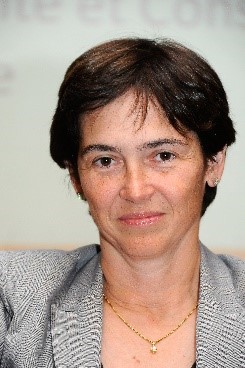Prevent. Protect. Immunize: European Immunization Week 2021

date: 15/04/2021
Why should people share your confidence in vaccine safety?
Vaccines, like all medicines, are only approved by the European Medicines Agency (EMA) for use in the EU if they prove to be safe and effective and show clear value. This involves a robust process that involves clinical trials, scientific analysis and hundreds of pairs of eyes looking at all the data.
All medicines, including vaccines, can have secondary or side effects, but these are small compared to the harm of the disease they try to prevent. One vaccine has recently come under investigation for a possible link to a rare blood clotting issue. This extremely unfortunate very rare side event has appeared in six cases per million of vaccine doses and has been detected and put under investigation. This example shows how our pharmacovigilance system works: these very rare and unusual events were picked up, identified, analysed so that EMA could make a clear science-based recommendation to allow the safe and effective use of the vaccine. EMA continues to monitor vaccine safety even beyond authorisation, to ensure that the overall benefits of a vaccine outweigh the risks of side effects.
All of this information is easily accessible on the EMA website. Complete transparency both reflects and inspires confidence.
We have known for decades that vaccines work. Think back to generations past, even up to the 1960s, when smallpox, measles and polio cost children their health, caused permanent disabilities or even took their lives. But childhood vaccines became victims of their own success. Because the diseases they prevented became so rare, people falsely assumed vaccination was no longer necessary. In recent years, we have seen an unnecessary and tragic rise of vaccine-preventable diseases like measles.
How is the Commission making sure that everyone has access to accurate information?
Vaccine scepticism is not new. But the COVID-19 pandemic has revealed the complexities of vaccine hesitancy and links to the spread of false or misleading information, giving us the chance to discuss genuine concerns and get the facts out.
The Commission has a dedicated webpage on Safe COVID-19 vaccines for Europeans and works closely with EMA, the European Centre for Disease Prevention and Control, EU Member States, fact-checking organisations, social media platforms and others to make sure everyone has access to accurate information about vaccination and other vital public health issues. The Commission will use the European Immunization Week to raise awareness of the benefits of vaccination and the recently launched European Vaccination Information Portal (vaccination-info.eu).
As the EU Health Award demonstrated last month, vaccination also has firm advocates, who work hard to promote this lifesaving public health tool. Our combined efforts are reaping results, including for diseases that have recently entered in vaccination programmes, such as cervical cancer.
Has COVID-19 disrupted regular vaccination programmes?
In 2020, health services were overburdened fighting the pandemic and some services had to deviate resources to take care of the unexpected big numbers of COVID-19 patients, including channelling resources from the vaccination programmes. But these are back on track.
That said, the WHO estimates that nearly 20 million children worldwide are not getting the vaccines they need, and many people miss vital vaccines during adolescence, adulthood and into old age. Vaccinations need to be kept up to date for optimal health.
With everyone focusing on COVID-19 vaccination, is it hard to draw attention to other vaccination programmes?
Yes, but, at the same time, the pandemic has made people aware of how vital vaccination can be, and may prompt them to get vaccinated against other diseases and to vaccinate their children too. COVID has forced people to focus on their health and many adopted better lifestyle choices, including getting regular vaccinations as prevention. We hope that continues long after the pandemic is over.
What is the situation regarding vulnerable groups?
People who are vulnerable due to serious health concerns cannot always be vaccinated and therefore rely on others to be vaccinated to provide herd immunity and reduce the risks of disease. And people who are vulnerable because of their social situation, such as the homeless and refugees, can be hard to reach and are more susceptible to any disease because of their living conditions. They may not have vaccination records or access to the information and services they need.
Why have you called vaccination “an act of solidarity?’
When you get vaccinated, you gain immunity but if enough people are vaccinated, your vaccination can also protect people who cannot get vaccinated because they are immunocompromised or don’t have access to health services. Pathogens are no longer transmitted when they can’t find a vulnerable host. Your vaccination is therefore an act of solidarity- it’s the best thing you can do to stop communicable diseases.
